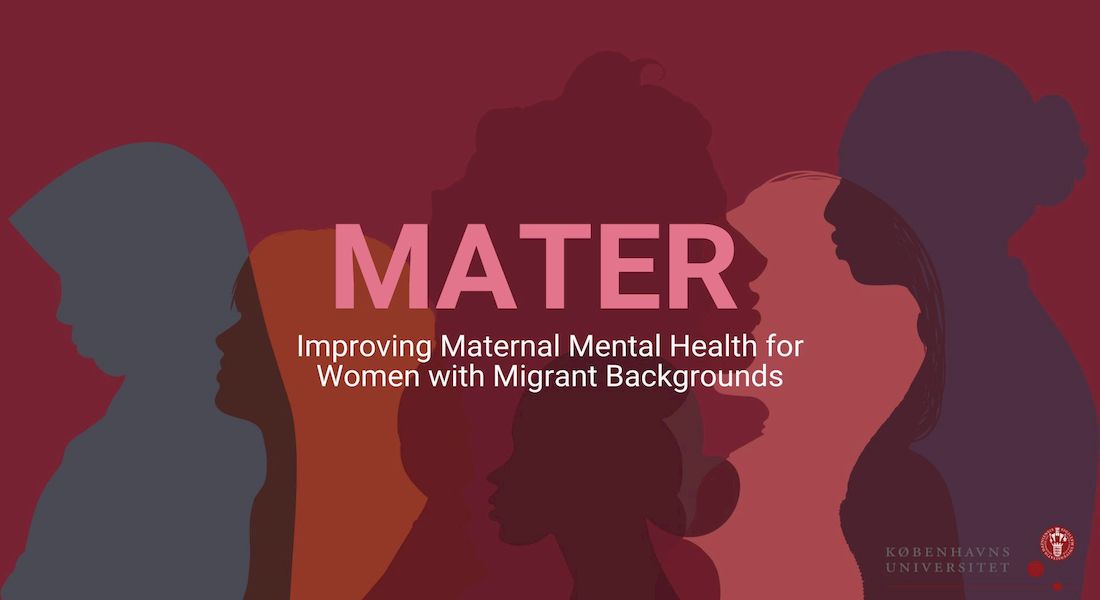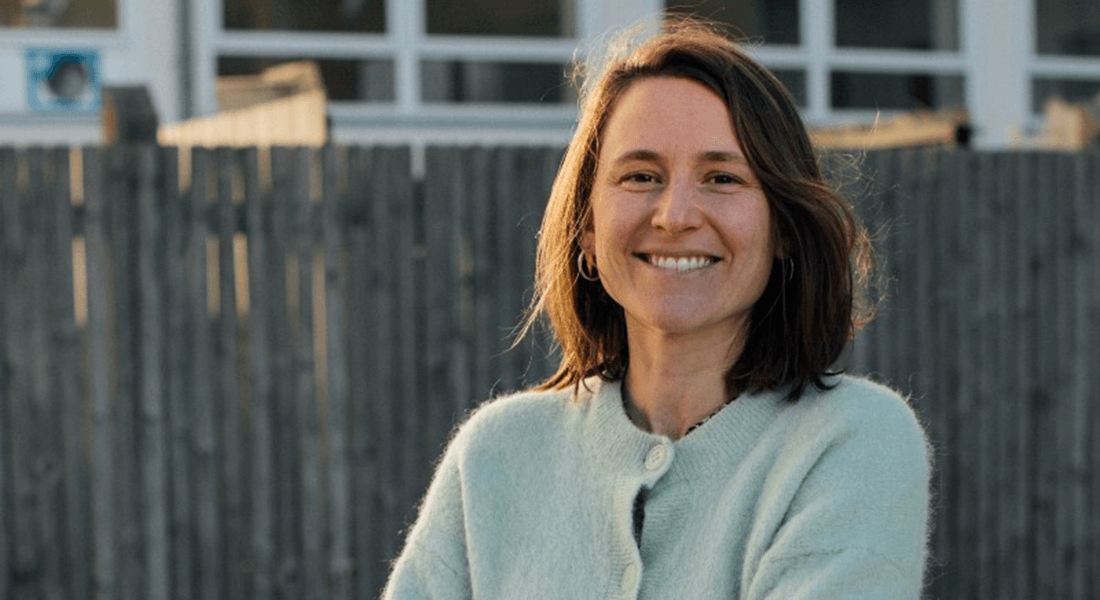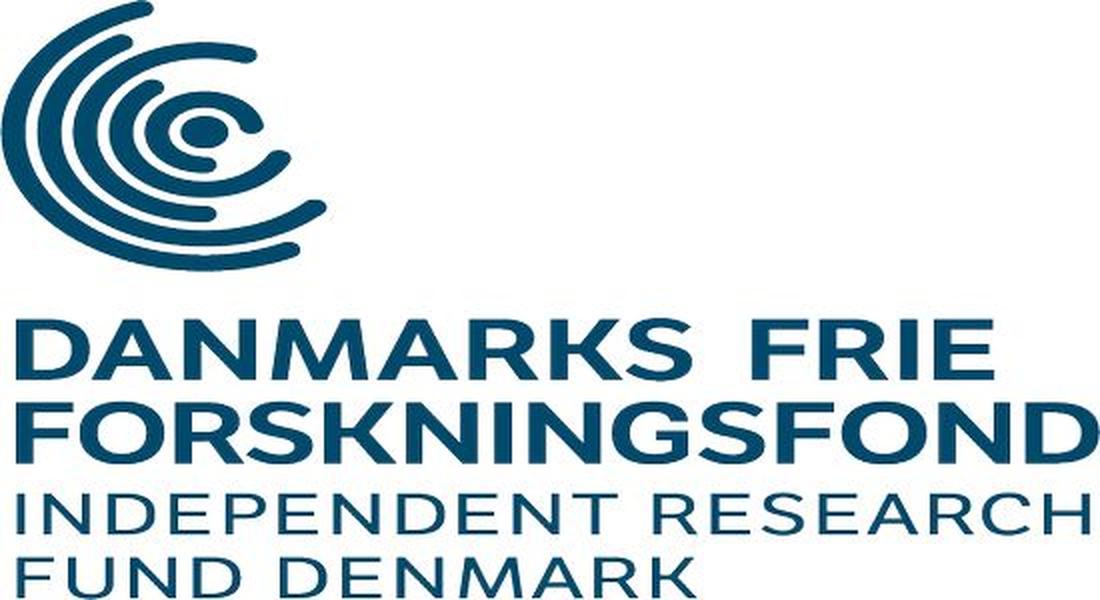MATER: Improving Maternal Mental Health for Women with Migrant Backgrounds

Women with migrant backgrounds living in high-income countries face a higher risk of postpartum reactions such as depression. We engage women with migrant backgrounds to explore how a socio-culturally adapted digital intervention can support women experiencing postpartum reactions.
Using participatory methods, MATER explores understandings and expressions of postpartum depression and feelings of distress in the postpartum period among women with migrant backgrounds living in Denmark. Building on human-centered design methods, we socio-culturally and linguistically adapt an existing self-guided digital mental health intervention (iCARE) for Arabic-speaking mothers experiencing symptoms of postpartum depression and anxiety. The adapted intervention will be tested in a feasibility trial to assess its appropriateness and acceptability. The project further examines the organizational readiness, as well as the potentials and limitations of implementing digital mental health interventions into the existing maternity care services in Denmark.
Funder
The project is funded by Independent Research Fund Denmark.
Project period
The project started in October 2024 and is expected to end in September 2027.
Postpartum depression (PPD) affects 10% of women in Denmark. Yet, women with migrant backgrounds are twice as likely to experience symptoms of PPD compared to native-born women. Despite this elevated risk, they are less likely to be screened by health visitors and, even when screened, are less likely to access mental healthcare services. This points to a critical gap: current maternal healthcare offerings often fall short to meet the perinatal mental health needs of women with migrant backgrounds and we have limited understanding of such reasons.
Improving access to timely and socio-culturally appropriate support is essential. While there is growing interest in digital interventions to prevent and treat PPD, little attention has been given to how such tools should be adapted to support women navigating motherhood in the context of migration, language barriers, and diverse socio-cultural experiences. Our study seeks to address this gap by co-developing strategies that create a space for women to share how they feel after giving birth and voice their needs, and access mental health support, and exploring how digital solutions can be made more inclusive, accessible, and responsive to the realities of migrant women’s lives.
Using participatory and human-center design methods, we will study:
1.Perceptions and expressions of mental health and postpartum depression (PPD) among women with migrant backgrounds in Denmark.
Through a participatory process involving women with migrant backgrounds and healthcare professionals, we explore shared understandings of PPD across diverse migrant groups. These insights will inform the mechanisms and socio-cultural content adaptation of a digital mental health intervention. Additionally, we aim to identify co-developed strategies that go beyond digital tools to support women with migration experiences living in Denmark.
2.The appropriateness, acceptability, and feasibility of a socio-culturally adapted digital self-help intervention for Arabic-speaking women living in Denmark.
We will engage in an iterative process to adapt the iCARE program for Arabic-speaking mothers experiencing distress during the postpartum period. The adapted intervention will undergo a feasibility trial, alongside a critical reflection on whether, how, and for whom such an intervention is effective.
3.The organizational readiness, as well as the potentials and limitations, of implementing digital mental health interventions within existing maternity care services in Denmark.
During the feasibility trial, we will collaborate with multiple municipalities and use surveys and focus groups to explore how—and to what extent—this digital intervention can be integrated into the care they provide to families.
Marti-Castaner M, Hvidtfeldt C, Villadsen SF, Laursen B, Pedersen TP, Norredam M. Disparities in postpartum depression screening participation between immigrant and Danish-born women. European Journal of Public Health. 1. february 2022;32(1):41–8. https://doi.org/10.1093/eurpub/ckab197
Santiá P, De Montgomery CJ, Pedersen TP, Marti-Castaner M. Differences in postpartum mental healthcare among women with identified needs: the role of migration status. Scand J Public Health. 1. november 2024;52(7):868–77.https://doi.org/10.1177/1403494823117833
Marti-Castaner,M., Villadsen, S. F., Petersen, J. H., & Nørredam, M. (2021). First perinatal psychiatric episode among refugee and family-reunified immigrant women compared to Danish-born women: a register-based study. Social psychiatry and psychiatric epidemiology, 56(12), 2239-2250. https://doi.org/10.1007/s00127-021-02104-x
First workshop on postpartum depression with Bydelsmødre
In January, we held a workshop with over 20 women from the NGO Bydelsmødre (Neighborhood Mothers) about mental health in the postpartum period. We discussed perspectives on mental health and what affects one's mental health both positively and negatively.
We also talked about perspectives on postpartum depression, what it means and what are the risk factors. We used body mapping, a participatory art-based research method, where the participants were invited to draw life-sized bodies with the emotions a mother can feel when she is not feeling well after having a baby, what affects her, and what can help her to feel better. Despite the sensitive topic, the room was filled with Wa warm atmosphere and women shared their views and personal stories.
The workshop was part of the MATER project, which aims to create more equity in mental health during the postpartum period for women with migrant backgrounds.
Second workshop with Bydelsmødre: seeking collective strategies
In April, we held our second workshop with over 15 women from the NGO Bydelsmødre.. This time, we explored what might be driving the differences in screening and access to mental health services among women with migrant backgrounds. A key theme that emerged was stigma and the fear of being judged as a “bad mother” or of having children taken away if they shared their struggles with health professionals.
Working in groups, we created a problem and solution tree that mapped out both the barriers and the strategies that could support women in sharing how they feel after giving birth with healthcare professionals. Together, we discussed ways to encourage asking for help, normalize a wide range of emotions and experiences, and challenge the harmful idea that feeling sad or different than expected makes someone a bad parent.
We also reflected on the potential role of digital self-help tools in supporting women’s mental health and explored how such interventions could be made more accessible and relevant.
We were joined by Sind Og Fødsel, a non-profit organization that supports parents experiencing perinatal mental health challenges. They shared their important work to raise awareness and build understanding around maternal mental health in Denmark.
In our next and final workshop, we’ll come together again to decide how best to take forward the co-developed strategies.
University of Copenhagen
Fiona Haustedt Mossman, PhD Fellow
Fiona.mossman@sund.ku.dk
Maria Marti Castaner, Associate Professor and PI of MATER
Sarah Fredsted Villadsen, Associate Professor,
Rawshan Zin Bengini, Peer Researcher
Adar Mohamed Hassan, Peer Researcher
University of Southern Denmark
Trine Munk-Olsen, Professor and PI of iCARE
Anja Friis, PhD Student
International partners:
Eva Heim, Associate Professor, Institute of Psychology, University of Lausanne.
Bydelsmødre
Clara Gaarn Johansen
Mai-Britt Haugaard Jeppesen
Ny mor i Danmark - Danish Refugee Council
Kirstine Fjordbak-Trier
Dina Roya Sørensen
Center for Digital Psychiatry in Odense


